Celebrating the Life and Legacy of Solomon Carter Fuller, MD
The school held a virtual celebration honoring the life and legacy Solomon Carter Fuller, MD, who graduated from the school in 1897. The first Black psychiatrist in the country and a renowned neurologist, pathologist and educator, he worked with Dr. Alois Alzheimer and practiced in the Boston area before joining the school faculty in 1919. Upon his retirement from academic medicine in 1933, he was appointed Emeritus Professor of Neurology, and continued in private practice for many years.
The daylong event was sponsored by the Departments of Neurology, Psychiatry, Pathology & Laboratory Medicine; Diversity & Inclusion and Alumni Association Offices; and BU Alzheimer’s Disease Research Center. This program was also sponsored by the Massachusetts Psychological Association.
Boston University Chobanian & Avedisian School of Medicine is accredited by the Accreditation Council for Continuing Medical Education to provide continuing medical education for physicians.
Boston University Chobanian & Avedisian School of Medicine designated this live activity for a maximum of 5.5 AMA PRA Category 1 Credits™. Physicians should claim only the credit commensurate with the extent of their participation in the activity.
This program was sponsored by the Massachusetts Psychological Association. Massachusetts Psychological Association is approved by the American Psychological Association to sponsor Continuing Education (CE) for psychologists. MPA maintains responsibility for this program and its content.
5.5 Hours
A certificate of participation was available for all attendees.
Attendees were emailed information on how to claim their credit post meeting.
Program Information
9-9:10 a.m. | Opening Remarks and Welcome
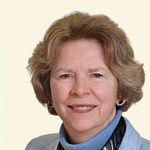 Karen Antman, MD
Karen Antman, MD
Boston University Medical Campus Provost, BUSM Dean
Dr. Antman's Bio
Dr. Antman, an internationally recognized expert on breast cancer, mesotheliomas and sarcomas, previously served as Deputy Director for Translational and Clinical Sciences at the National Cancer Institute of the National Institutes of Health (NIH) and before that as Wu Professor of Medicine and Pharmacology and Director of the Herbert Irving Comprehensive Cancer Center at Columbia University College of Physicians and Surgeons, where she co-directed the cancer care service line at New York Presbyterian Hospital. She served on the faculty of Harvard Medical School from 1979 to 1993, and had hospital appointments at Brigham and Women’s Hospital and Dana-Farber Cancer Institute in Boston.
She is a member of the Institute of Medicine and serves on the Administration Board of the American Association of Medical Colleges Council of Deans, and on the board of the Educational Commission for Foreign Medical Graduates. She served on the Council of the Fogarty International Center of the NIH and as President of the American Society of Clinical Oncology, the American Society of Blood and Marrow Transplant, and the American Association for Cancer Research. She has more than 300 publications, edited five textbooks and monographs and has published reviews and editorials on medical education, medical policy and the impact of research funding and managed care on clinical research.
She received her MD from Columbia University College of Physicians and Surgeons, performed her residency at
Columbia University Medical Center, and her fellowship at Dana Farber Cancer Institute, Harvard Medical School.
9:10-9:50 a.m. | Historical Talk on the Life and Times of Dr. Solomon Carter Fuller
 Chantale Branson, MD
Chantale Branson, MD
Assistant Professor of Neurology, Morehouse Healthcare, Assistant Adjunct Professor of Neurology, BUSM
Dr. Branson's Bio
Dr. Branson is currently an Assistant Professor of Neurology, Course Director at Morehouse School of Medicine, and adjunct Assistant Professor of Neurology at Boston University Medical Center. Dr. Branson completed her neurology residence, movement disorders, and sleep medicine fellowship at Boston University Medical Center. Dr. Branson is the first movement disorders specialist at Morehouse School of Medicine. Under her stewardship, Morehouse became the first historically black institution to join the Parkinson’s Study Group (PSG) consortium. She has also developed a movement disorder clinic at Grady Hospital in Atlanta.
Her research interests include eradicating racial disparities among people with Parkinson’s disease. This includes exploring physician and environmental factors that may impact the inequity among people with Parkinson’s disease. Dr. Branson is an active member of the Movement Disorders Society.
9:50-10:20 a.m. | Honoring Dr. Fuller | Family Panel
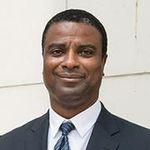 David C. Henderson, MD
David C. Henderson, MD
Chair Department of Psychiatry, BUSM, Professor of Psychiatry, BUSM
Dr. Henderson's Bio
Dr. Henderson currently serves as Psychiatrist-in-Chief at Boston Medical Center and Professor and Chair of Psychiatry at BUSM. He previously served as Director of The Chester M. Pierce, MD Division of Global Psychiatry at Massachusetts General Hospital (MGH), Director of the MGH Schizophrenia Clinical and Research Program, and Medical Director of the Harvard Program in Refugee Trauma.
Dr. Henderson serves as Co-Director of the NIMH T32 Boston University Chobanian & Avedisian School of Medicine/Massachusetts General Hospital (MGH) Global Mental Health Clinical Research Fellowship. He has worked internationally for the past 25 years in resource-limited settings, and areas impacted by mass violence, disasters and complex emergencies. Dr. Henderson has conducted research and training programs in Bosnia, Cambodia, East Timor, Ethiopia, Haiti, Liberia, New Orleans, New York City, Rwanda and Peru, South Africa, and Somaliland among other places. His work has consisted of field studies, needs assessments, mental health policy development and strategic planning, quantitative and qualitative surveys, mental health capacity building programs for specialized and primary health professionals, and skill-transfer program evaluation. In the United States, he has conducted more than 30 randomized clinical trials in severely mentally ill populations.
10:20-11:10 a.m. | Keynote Talk | Diversity in AD Research Recruitment
 Goldie Smith Byrd, PhD
Goldie Smith Byrd, PhD
Director, Maya Angelou Center for Health Equity, Wake Forest School of Medicine, Professor, Social Sciences and Health Policy, Wake Forest School of Medicine
Dr. Byrd's Bio
Dr. Byrd, received her Bachelor of Science degrees in Professional Biology and in Biology Secondary Education at North Carolina A&T State University. She received her PhD at Meharry Medical College in Microbial Genetics. She completed post-doctoral work at Meharry Medical College, the University of North Carolina at Chapel Hill, and Duke University. Dr. Byrd was previously a faculty member in the biology departments at Tennessee State University and North Carolina Central University, and more recently an adjunct Assistant Professor at Duke University.
11:10-11:40 a.m. | Q&A panel for all morning sessions
11:40 a.m.-1 p.m. | Lunch Break
1-1:50 p.m. | Mini-sessions; Non-CME Programming; Open to the public
1 p.m. | History of BU ADRC | Interview with Valerie Nolen
 Andrew Budson, MD
Andrew Budson, MD
Chief of Cognitive & Behavioral Neurology, Associate Chief of Staff for Education, Director of the Center for Translational Cognitive Neuroscience, Veterans Affairs (VA) Boston Healthcare System, Associate Director for Research, BU Alzheimer’s Disease Center, Professor of Neurology, BUSM
Dr. Budson's Bio
Dr. Budson’s training included graduating cum laude from Harvard Medical School, being chief resident of the Harvard-Longwood Neurology Residency Program, pursuing a fellowship in dementia at Brigham and Women’s Hospital, and studying memory as a post-doctoral fellow in experimental psychology and cognitive neuroscience at Harvard University. Dr. Budson has had government research funding since 1998, receiving a National Research Service Award and a Career Development Award in addition to a Research Project (R01) grant. He has given over 425 local, national, and international grand rounds and other academic talks.
He has published over 100 papers, reviews, and book chapters and is a reviewer for more than 40 journals. He has co-authored or edited five books, including Memory Loss, Alzheimer’s Disease, and Dementia: A Practical Guide for Clinicians, the second edition of which has been translated into Spanish, Portuguese, and Japanese. He was awarded the Norman Geschwind Prize in Behavioral Neurology in 2008 and the Research Award in Geriatric Neurology in 2009, both from the American Academy of Neurology. His current research uses the techniques of experimental psychology and cognitive neuroscience to understand memory in patients with Alzheimer’s disease. In his memory disorders clinic at the VA Boston Healthcare System he treats patients while teaching fellows, residents, and medical students.
 Valerie Nolen, MPM, PC
Valerie Nolen, MPM, PC
Sr. Facilitator to the Dept. of Neurology for BU ADRC Community Action CouncilMs. Nolen's Bio
Ms. Nolen, is a dedicated member of Boston University Alzheimer’s Disease Research Center serving as Senior Facilitator for Community Action Council and Diversity, Equity, and Inclusion partner with Department of Neurology.
She serves as liaison to build in-kind partnership between community leaders, clinicians and educators in support AD research, education, and awareness. She is a champion to advocate with and outreach to legislators, and serves as Minister to connect with spiritual leaders in serve to families and communities’ leaders of color.
1:15 p.m. | REC Research Focus
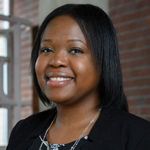 Lola Baird, LICSW
Lola Baird, LICSW
Polytrauma/TBI Program Coordinator at the Veterans Affairs Boston Healthcare System
Ms. Baird's Bio
Ms. Baird, is a Licensed Independent Clinical Social Worker (LICSW) in the state of Massachusetts with more than 7-years of experience providing mental health and social work. She is a current trainee in the BU ADRC Research Education Component (REC) Scholar program. Her goal is to use research to better understand the effect of structural disadvantages, such as neighboring violence, on health outcomes, with the goal of creating innovations and interventions that are meant to mitigate the impact of such structural disadvantages.
1:30 p.m.| BU ADRC Current Research Overview
 Royisha Young, MS
Royisha Young, MS
Recruitment Coordinator, Boston University Alzheimer’s Disease Research CenterMs. Young's Bio
Ms. Young is the Recruitment Coordinator at Boston University Alzheimer’s Disease Research Center and is a member of the Outreach, Recruitment, and Engagement (ORE) Core team that facilitates the recruitment and retention of research participants. She is actively working in the community seeking ways to educate families about Alzheimer’s clinical research. She endeavors to build relationships with potential research participants, especially those from underserved communities.
1:50-2:40 p.m. | Primary Progressive Apraxia of Speech: Clinical, Neuroimaging and Neuropathological Features of this Devastating Neurodegenerative Syndrome
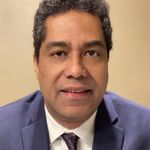 Keith Josephs, MD
Keith Josephs, MD
Professor of Neurology, Professor of Neuroscience, Mayo Clinic
Dr. Josephs' Bio
Dr. Josephs completed a Bachelor’s and Master’s Degree in Mathematics from the University of Florida in 1993. He obtained his Medical degree from the Medical College of Pennsylvania in 1997. After completing a 1-year internship in Medicine, a three year residency in Neurology, and a Movement Disorders Fellowship at Mayo Clinic, he was awarded a Mayo Clinic Foundation Scholarship to University College London, United Kingdom, where he studied Degenerative Neuropathology and Dementia. After returning to the Mayo Clinic in 2003, he completed a second Master’s Degree in Clinical and Translational Research. He was appointed Professor of Neurology in 2011, Clinician Investigator in 2016, and became the Ani Professor of Alzheimer’s Disease Research in 2020. He is an active fellow of the American Academy of Neurology.
Dr. Josephs is internationally recognized as one the world’s leading experts in neurodegenerative diseases. He has identified and characterized many previously unrecognized diseases and has published almost 500 scientific peer-reviewed manuscripts in prestigious journals. He is the recipient of several prestigious scientific awards from the American Philosophical Society, Ohio State University, the American Academy of Neurology, the American Federation for Medical Research, the Association for Clinical and Translational Science, and the Alzheimer’s Association. He has given many national and international keynote lectures and is principal investigator of four NIH funded R01 grants.
2:40-3:30 p.m. | Scientific and Clinical Legacy of Dr. Solomon Carter Fuller to Psychiatry

Steven Starks, MD, FAPA
Clinical Assistant Professor, University of Houston College of Medicine
Dr. Starks' Bio
Steven Starks, MD is a clinical assistant professor at the University of Houston College of Medicine and a Pozen-Commonwealth Fund Fellow in Health Equity Leadership at Yale School of Management.
Prior to his role in medical education, he was a Health and Aging Policy Fellow and American Political Science Association Congressional Fellow who served in the Office of the Speaker of the U.S. House of Representatives where he contributed to the design, drafting and roll out of the Elijah E. Cummings Lower Drug Costs Now Act. Previously, he designed programs that integrate mental health practice into home-based care, long-term care and primary care practice settings to ensure seniors and veterans with mental health and substance use disorders received compassionate and effective psychiatric care and treatment. His advocacy, scholarly writing, and research primarily address racism and inequity in medical education, organized medicine and mental health.
He earned his medical degree from the Louisiana State University Health Sciences Center in New Orleans – receiving the Dean’s Award at commencement, completed his psychiatry residency training at Baylor College of Medicine Affiliated Hospitals Residency Program and a clinical fellowship in geriatric psychiatry at Yale-New Haven Medical Center.
He is the representative to Assembly for the American Psychiatric Association’s Caucus of Black Psychiatrist, chair of the APA Assembly Committee of Minority/Underrepresented Groups and a steering committee member of the National Medical Association/AAMC Action Collaborative for Black Men in Medicine.
3:30-3:45 p.m. | Break
3:45-4:45 p.m. | Afternoon Panel Discussion |Academic Promotion for Black People: Challenges and Opportunities
 David C. Henderson, MD
David C. Henderson, MD
Chair Department of Psychiatry, BUSM, Professor of Psychiatry, BUSM
Dr. Henderson's Bio
Dr. Henderson currently serves as Psychiatrist-in-Chief at Boston Medical Center and Professor and Chair of Psychiatry at BUSM. He previously served as Director of The Chester M. Pierce, MD Division of Global Psychiatry at Massachusetts General Hospital (MGH), Director of the MGH Schizophrenia Clinical and Research Program, and Medical Director of the Harvard Program in Refugee Trauma.
Dr. Henderson serves as Co-Director of the NIMH T32 Boston University Chobanian & Avedisian School of Medicine/Massachusetts General Hospital (MGH) Global Mental Health Clinical Research Fellowship. He has worked internationally for the past 25 years in resource-limited settings, and areas impacted by mass violence, disasters and complex emergencies. Dr. Henderson has conducted research and training programs in Bosnia, Cambodia, East Timor, Ethiopia, Haiti, Liberia, New Orleans, New York City, Rwanda and Peru, South Africa, and Somaliland among other places. His work has consisted of field studies, needs assessments, mental health policy development and strategic planning, quantitative and qualitative surveys, mental health capacity building programs for specialized and primary health professionals, and skill-transfer program evaluation. In the United States, he has conducted more than 30 randomized clinical trials in severely mentally ill populations.
 Keith Josephs, MD
Keith Josephs, MD
Professor of Neurology, Professor of Neuroscience, Mayo Clinic
Dr. Josephs' Bio
Dr. Josephs completed a Bachelor’s and Master’s Degree in Mathematics from the University of Florida in 1993. He obtained his Medical degree from the Medical College of Pennsylvania in 1997. After completing a 1-year internship in Medicine, a three year residency in Neurology, and a Movement Disorders Fellowship at Mayo Clinic, he was awarded a Mayo Clinic Foundation Scholarship to University College London, United Kingdom, where he studied Degenerative Neuropathology and Dementia. After returning to the Mayo Clinic in 2003, he completed a second Master’s Degree in Clinical and Translational Research. He was appointed Professor of Neurology in 2011, Clinician Investigator in 2016, and became the Ani Professor of Alzheimer’s Disease Research in 2020. He is an active fellow of the American Academy of Neurology.
Dr. Josephs is internationally recognized as one the world’s leading experts in neurodegenerative diseases. He has identified and characterized many previously unrecognized diseases and has published almost 500 scientific peer-reviewed manuscripts in prestigious journals. He is the recipient of several prestigious scientific awards from the American Philosophical Society, Ohio State University, the American Academy of Neurology, the American Federation for Medical Research, the Association for Clinical and Translational Science, and the Alzheimer’s Association. He has given many national and international keynote lectures and is principal investigator of four NIH funded R01 grants.
 Teshamae Monteith, MD
Teshamae Monteith, MD
Associate Professor of Clinical Neurology, University of Miami, Miller School of Medicine
Dr. Monteith's Bio
Dr. Monteith is an Associate Professor of Clinical Neurology at the University of Miami, Miller School of Medicine. She is the Chief of the Headache Division and the program director for the United Council of Neurologic Subspecialties (UCNS) Headache Medicine fellowship program. Dr. Monteith received a Bachelor of Science degree in Biology at Florida International University prior to obtaining a medical degree at the University of Miami, Miller School of Medicine. She received her Neurology residency training at New York University, and then pursued two fellowships in headache medicine at Thomas Jefferson University and University of California, San Francisco.
Dr. Monteith is a member of the Board of Trustees for the International Headache Society, and President-Elect of the Florida Society of Neurology. She currently serves on the editorial board for the American Migraine Foundation and the American Academy of Neurology’s Brain and Life Magazine. She also sits on the Diversity Officers Subcommittee of the American Academy of Neurology (AAN) and the American Neurological Association’s Addressing the Pipeline for Academic Neurology Leadership Workgroup.
Dr Monteith is a recipient of the CTSI Public Voices Fellowship. She is also a co-recipient of the American Academy of Neurology’s (AAN) Palatucci Advocacy Leadership Award and the American Headache Society’s Wolff award. She received the Florida International Society’s Torch Award and the University of Miami, Miller School of Medicine Dean’s Diversity Award for her work on racial justice in the medical curriculum and the department’s Inclusion, Diversity, Equity, Anti-racism, and Social Justice (IDEAS) committee.
She has lectured both nationally and internationally, authored numerous publications and has provided peer review for both national and international journals. Dr. Monteith has served on several advisory boards for migraine and cluster headache. She has hosted over 80 podcasts for the AAN Neurology Journal/Neurology, Neurology Minute and Continuum Audio for topics important for neurologists including brain health, migraine, cluster headache and secondary headache disorders. Her research interest has been in the cross section of migraine and stroke, funded by the NIH NINDS Research Supplements to Promote Diversity in Health-Related Research. During the pandemic, she became a member of the US National Cohort COVID Collaborative Neurology Clinical Team Domain; her interest includes the investigations of Post-COVID headache, the impact on migraine, and Post-Acute Sequela of COVID19 (Long-COVID).
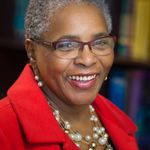 Altha J. Stewart, MD
Altha J. Stewart, MD
Senior Associate Dean for Community Health Engagement and Associate Professor, Psychiatry at University of Tennessee Health Science Center, Director, Division of Public and Community Psychiatry and Director, Center for Health in Justice Involved Youth in the Department of Psychiatry
Dr. Stewart's Bio
Prior to joining the University of Tennessee Health Science Center College of Medicine faculty, Dr. Stewart served as Executive Director of Memphis’ federally funded System of Care program for children with serious emotional disorders and their families.
Dr. Stewart is the former Executive Director of the Detroit-Wayne County Community Mental Health Agency, one of the largest public mental health systems in the US. She served as Deputy Commissioner and later Interim Commissioner of the former New York City Department of Mental Health, and CEO/Executive Director in other large public health and mental health systems in New York and Pennsylvania, overseeing the management and development of programs for persons with mental illness, substance use disorders, and justice system involvement.
Dr. Stewart received her medical degree from Temple University Medical School, completing her psychiatric residency at what is now Drexel University. In 2017, Dr. Stewart was elected the 145th President of the American Psychiatric Association, the first African American ever elected to this position in the 175-year history of the organization. She is also past president of the Black Psychiatrists of America, the Association of Women Psychiatrists, and the American Psychiatric Foundation.
She has received numerous awards and honors including, visiting professorships at MGH, University of Maryland, UC Davis, honorary membership in the South African Society of Psychiatrists, honorary degrees from Regis College and Christian Brothers University, NAMI Exemplary Psychiatrist Awards (2002 and 2020), and APA’s Solomon Carter Fuller and Alexandra Symonds Awards.
4:45-5:15 p.m. | Q&A panel for all afternoon sessions
5:15-5:25 p.m. | Closing remarks
 Michelle P. Durham, MD, MPH, FAPA
Michelle P. Durham, MD, MPH, FAPA
Clinical Associate Professor, Psychiatry, BUSM
Dr. Durham's Bio
Michelle P. Durham, MD, MPH, FAPA, DFAACAP is the Vice Chair of Education in the Department of Psychiatry at Boston University Chobanian & Avedisian School of Medicine/Boston Medical Center (BMC). She is a board certified physician specializing in pediatric and adult psychiatry with additional board certification in addiction medicine. Her public health and clinical roles have always been in marginalized communities. She is dedicated to health equity and advocacy for equitable mental health treatment globally and locally. Dr. Durham practices clinically at BMC, serves as the Associate Director for the BUSM/BMC Global and Local Center for Mental Health Disparities and as Clinical Associate Professor of Psychiatry at BUSM.
Dr. Durham’s public health and clinical roles have always been in marginalized communities. She is dedicated to health equity and advocacy for equitable mental health treatment globally and locally. Her research focuses on workforce development that reflects groups historically excluded from medicine, training and education for both the pediatric workforce and mental health professionals. She is the Director of Clinical Training for the BMC Transforming and Expanding Access to Mental Health in Urban Pediatrics (TEAM UP) grant funded initiative to bring mental health care into the pediatric primary care setting in federally qualified community health centers. Through the TEAM UP initiative she developed an e-course for the pediatric care team to build foundational skills in working with children and adolescents with behavioral health concerns. She is the PI for two federally funded HRSA (Health Resources and Services Administration) grants: Maternal and Child Health Collaborative Office Rounds and the Achieving Culturally Competent and Equitable Substance use Services (ACCESS) Training Program.
She received her MD from Louisiana State University in New Orleans, completed her residency training at BMC and her child and adolescent psychiatry fellowship at Yale Child Study Center in New Haven, Connecticut where she was also elected Chief Resident. She received her Master’s in Public Health in Health Policy and Management from the Emory Rollins School of Public Health in Atlanta. Prior to completing her medical education, she worked as the Assistant Director for the Center of Excellence on Health Disparities at the Morehouse School of Medicine in Atlanta.
Dr. Durham is the Massachusetts representative to the American Psychiatric Association (APA) and member of the APA Council on International Psychiatry and Global Health. She is a member of the Council on Health Promotion and Prevention for the American Academy of Child and Adolescent Psychiatry (AACAP) to improve the standard of care for children and adolescents. For her contributions and dedication to the field of psychiatry, Dr. Durham has been appointed a Fellow of the APA and Distinguished Fellow of AACAP. Dr. Durham’s interests lie in advocacy, mental healthcare integration into the pediatric primary care setting, trauma in young children, health inequities among Black and brown populations and training/education.
Target Audience
Physicians, psychologists and social workers in the fields of neurology and psychiatry, primary care.
Learning Objectives
At the end of this activity, the learner should be able to:
- Describe the psychiatric, neurological and neuropathological legacy of Dr. Solomon Carter Fuller.
- Discuss the diversity, equity and inclusion issues facing Black physicians in academic medicine in the past and now.
- Identify ways to improve their own ability equitably detect, diagnose and treat Black patients suffering from cognitive disorders.
- Identify the neuropathology of neurodegenerative disorders.
- Identify the neurological features of neurodegenerative disorders.
Boston University strives to be accessible, inclusive and diverse in our facilities, programming and academic offerings. Your experience in this event is important to us. If you have a disability, require communication access services for the deaf or hard of hearing, or believe that you require a reasonable accommodation for another reason please contact Samrana Bertrand at least three weeks prior to event to discuss your needs.